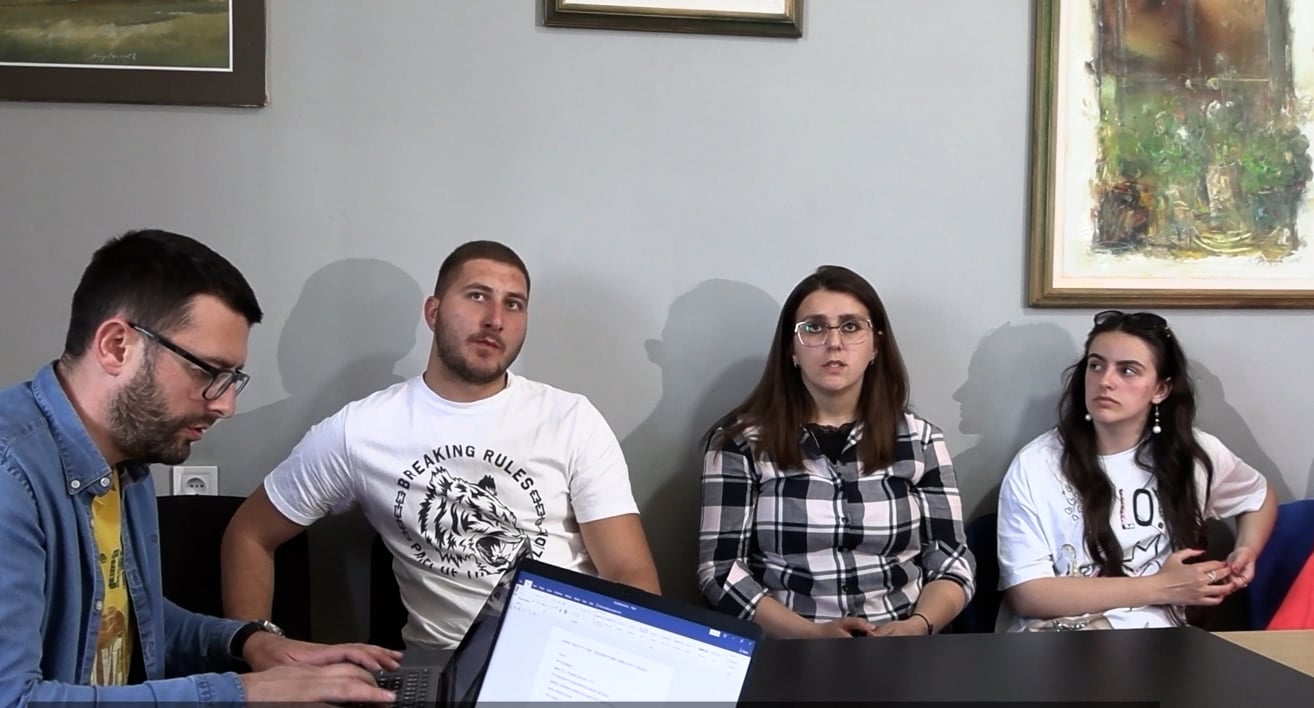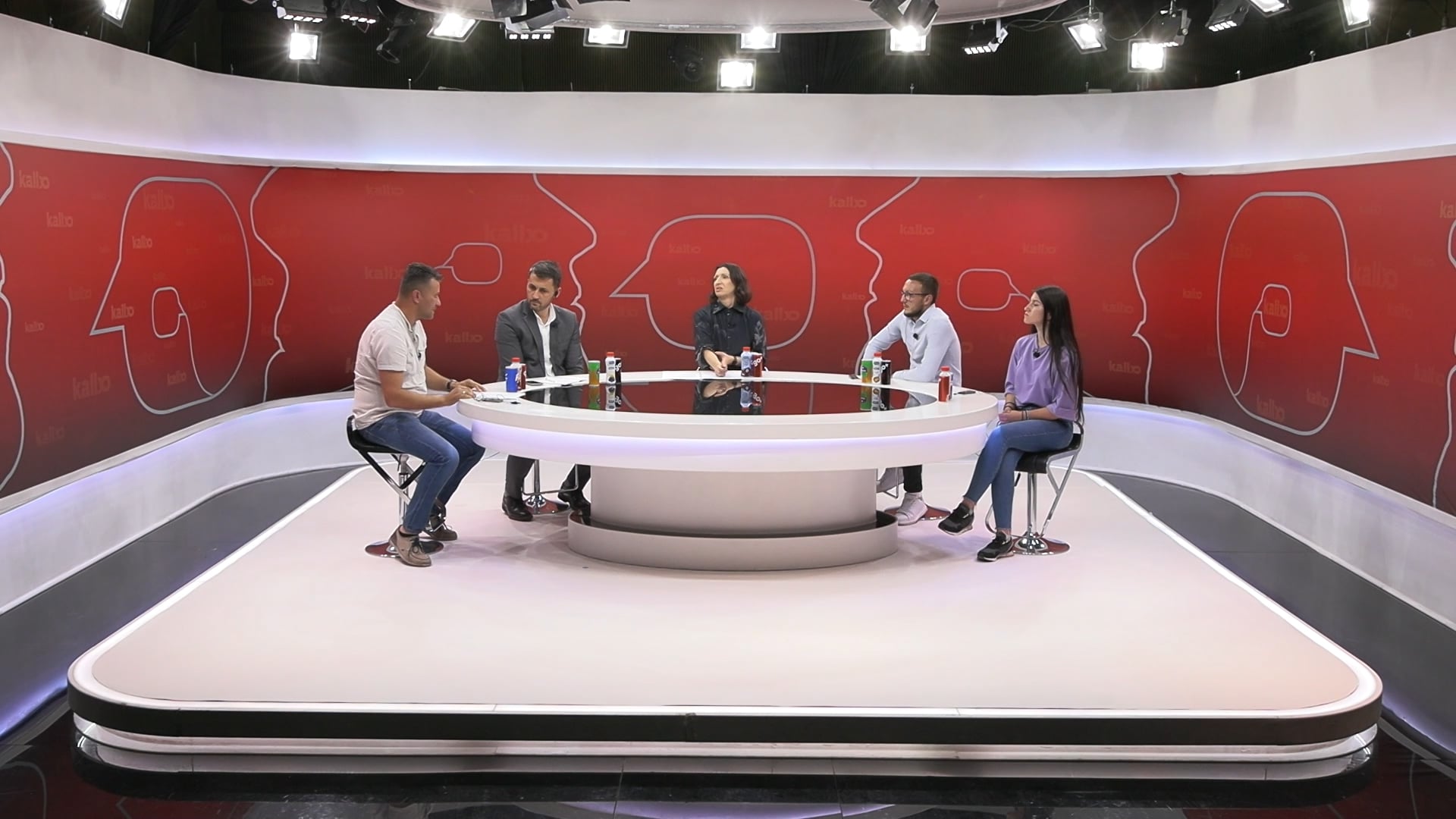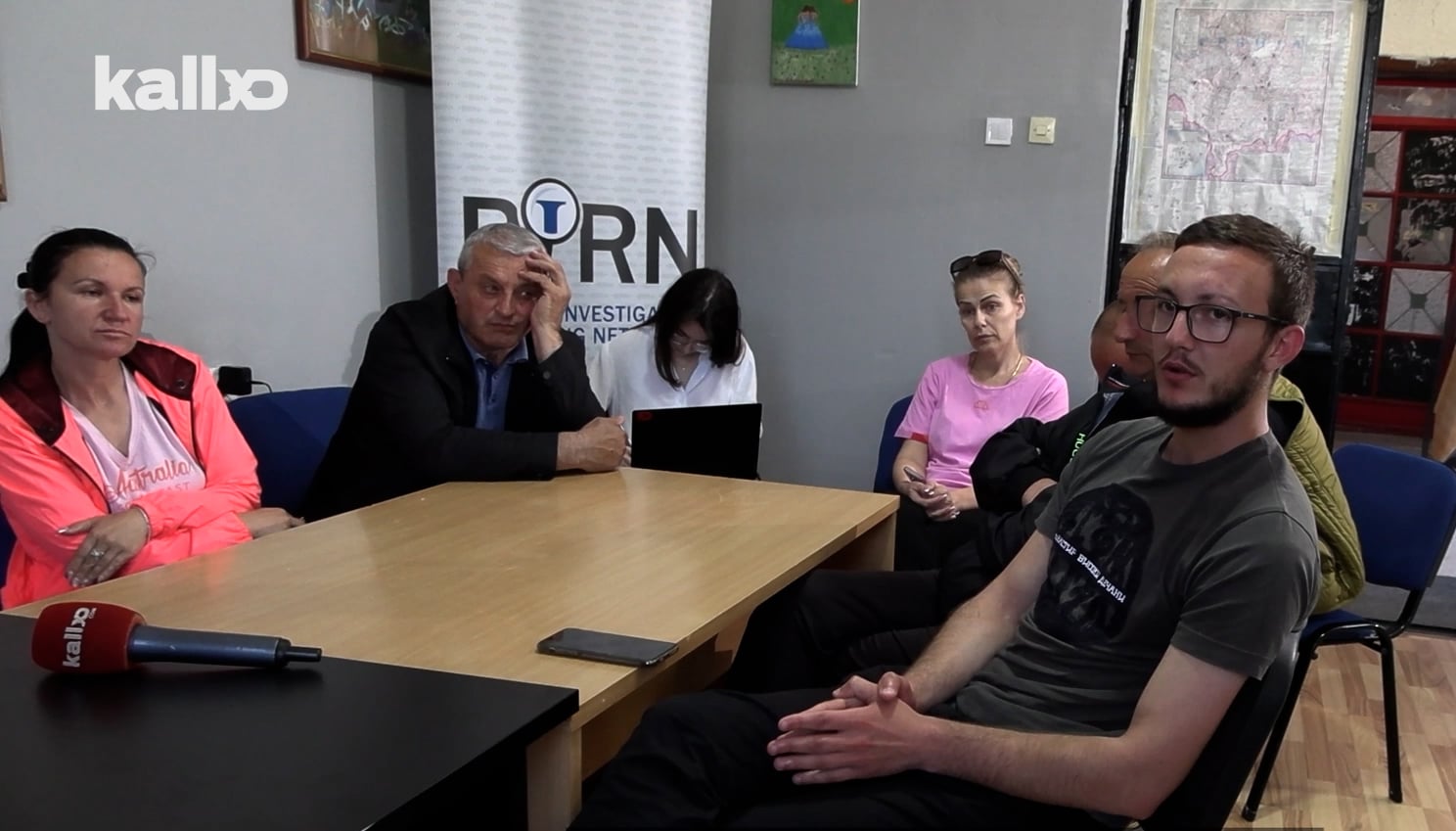Residents of Gorazdevac, a Serb majority village in the municipality of Peja/Pec, Kosovo, claim they are struggling to integrate into Kosovo society because of obstacles including language and infrastructure barriers.
Kosovo Serbs from Gorazdevac, a village approximately seven kilometres from Peja/Pec municipality, requested at a public hearing also attended by BIRN and local media outlet Radio Gorazdevac that authorities provide Serbian translations of official documents and increase the investment in infrastructure projects such as road safety in order to improve their quality of life.
Sasa Petrovic, a member of the advisory council of the Kosovo Presidency, claimed that “there is no translator in the municipality’s administration”. He told Kallxo Përnime TV Programme, on June 14, that the office for returnees and communities of the Ministry of Local Government “worked quite well until the director, who was Serbian, retired, and now it no longer works, while the recruiting procedure has been frozen for two years.”
Darko Dimitrijevic from the local Serb language media outlet Radio Gorazdevac explained that different state institutions such as “the municipality, Prosecution, Court, hospitals,” and public enterprises “do not respect the right to use the official languages, in this case Serbian,” as the second official language of Kosovo.
Faik Zekaj, the spokesperson for the municipality of Peja/Pec, stated that the municipality has translators, and that decisions on citizens’ requests are made in the language in which they are submitted.
“We have a translator, all documents are in all three languages, but officials, especially those in the younger generation, may not know the language,” he elaborated.
However, Petrovic explained that “it’s not just about simple translation, we lack professional translation of texts. A large number of announcements are published only in Albanian”.
Residents of Gorazdevac also claimed that the current lack of Serb police officers is problematic.
Petrovic described how “we have a sub-police station in Gorazdevac where no Serbian police officers work,” adding that after the retirement of previous police officers “young police officers from Bosniak and the Albanian community came”.
Bureaucratic Roadblocks

Radio Gorazdevac and BIRN Kosovo held a meeting with the residents of Gorazdevac regarding public services, June 13, 2024: Photo/BIRN
Kosovo Serbs living in Gorazdevac face many challenges obtaining Kosovo documents, especially in cases in which they were born in Serbia but now live in Kosovo.
Miljana Zlaticanin, a resident of Gorazdevac, told Kallxo Përnime TV programme that “in 2022, I waited nine months to receive the birth certificate of Kosovo, even though I was told that I would receive it in two weeks at the most”.
“I was told that there was a shortage of papers in Prishtina,” she said.
Zekaj explained that during that period the shortage of material for identification documents was a problem throughout the country. According to Zekaj, the problem lasted “until they (the government of Kosovo) decided to print the materials in Kosovo”.
Damjan Portic, a Kosovo Serb journalist and activist, emphasised that he has also experienced difficulties in obtaining Kosovo ID.
“After the war, many young people were born in central Serbia and after one, two, or even three months, or a year, they returned to Gorazdevac. I was born in 2000 in Kragujevac, and at that time no one felt the need for Kosovo documents. However, I have evidence that I have lived in Gorazdevac my entire life, for 24 years. Some of this evidence includes completing primary and secondary school here”, he stated.
“However, the documents given to us by the Government of the Republic of Serbia mark the Police Department in Peja. These documents are obtained in Kragujevac, indicating that we are citizens of Peja. In the Municipality of Peja, I have been trying for three months to obtain a birth certificate, and I had to gather many documents”, he added, while asking if there is a way to ease this process.
In December 2023, in order to arrive at a rough figure of how many Serbs were registered in Kosovo, and who thus have the right to be issued Kosovo IDs, BIRN requested civil registration data for the 10 Serb-majority municipalities in Kosovo from the Kosovo interior ministry. According to this data, there were 21,230 new registrations made between 2018 and 2023, of which 13,040 were for individuals aged 18 and above.
The Civil Registration Agency told BIRN that applications between 2021 and 2023 were mainly via naturalisation, based on expired Yugoslav-era documents or based on birth in Kosovo after 1999, when Serbian forces were driven out by NATO air strikes and Kosovo became a ward of the United Nations.
The data shows that thousands of Kosovo Serbs have decided to register themselves or their children in Kosovo’s civil registry, the first step in obtaining Kosovo-issued documents. However, not being able to register using their IDs from the Serbian parallel system operating in Kosovo has halted the process, as the registrations have dropped significantly.
For those who were born outside of Kosovo and later returned, like Portic, or who have only had documents issued by the Serbian parallel system operating in Kosovo, registration within Kosovo institutions can be difficult, meaning they might not be able to get legal documents, travel or vote.
Bowing to EU pressure in order to clinch the visa waiver in 2009, Serbia began issuing different documents for Serbs resident in Kosovo, effectively denying them the same travel rights enjoyed by other Serbian citizens and closing a possible loophole for illegal immigration. However, a regular Serbian passport, not the kind issued to Serbs in Kosovo, is also out of reach.
Daily obstacles because of lack of infrastructure

Gorazdevac citizens and Peja/Pec Municipality spokesperson discuss about the Serbian community challenges in ‘Kallxo Pernime’ TV Program on June 14, 2024, Photo/BIRN
Daily life in Gorazdevac is also difficult because of a lack of proper infrastructure. Katarina Magic, a resident of the village, asserted that ”the most important and highest priority for me as a mother of two children is the placement of speed bumps, especially near the school”.
Zekaj claimed there is not enough space on that road for sidewalks, and that the “speed bumps” were damaged by snow removal vehicles.
Petrovic, emphasising that this is not an ethnic issue but rather “the fact that some drivers drive at excessive speeds in areas where there are no sidewalks,” claimed that concrete speed bumps closer to the school would help protect the children and also avoid the damage of the bumps.
Petrovic also noted that the EU’s measures have affected the non-realization of infrastructure projects, adding that “in 2021, the Municipality of Peja planned to implement a project in cooperation with the Embassy of Switzerland, which had a value of 25,000 euros. The project included the construction of a playground in Gorazdevac, but only a path was built”.
Petrovic highlighted another obstacle the residents face: the billing of debts by the regional water distribution company ‘Hidrodrini’.

Radio Gorazdevac and BIRN Kosovo held a meeting with the residents of Gorazdevac regarding their challenges, June 13, 2024: Photo/BIRN
“The problem is that the water metre has not been read for years, and now bills have come with very high amounts, some even higher than 2000 euros,” he explained, arguing that the residents, many of whom are pensioners or beneficiaries of social schemes, cannot afford these bills.
“These are non-receipted bills where surely the company ‘Hidrodrini’ has calculated how much water a family can spend on average for 25 years”, Portic added, explaining that currently he pays an average of 6 euros per month, but that his total debt is 1,460 euros. He suggested that bills should be divided for 24 years and paid on a monthly basis.
In a July 18 press release, the water supply company ‘Hidrodrini’ denied the statements made by representatives of the village of Gorazdevac regarding water supply bills.
“Hidrodrini has not issued bills with accumulated debt for 25 years, but mostly for 32 months,” for the COVID-19 pandemic period, the press release reads.
“Of the 250 households in Gorazdevac supplied by ‘Hidrodrini’, 105 have been transferred to the bailiff because of debts, while the rest have been offered an agreement to pay the debt in the time period of three to five years”, the press release reads.
Hidrodrini emphasises that they are not having similar problems in other multi-ethnic villages in the area.





